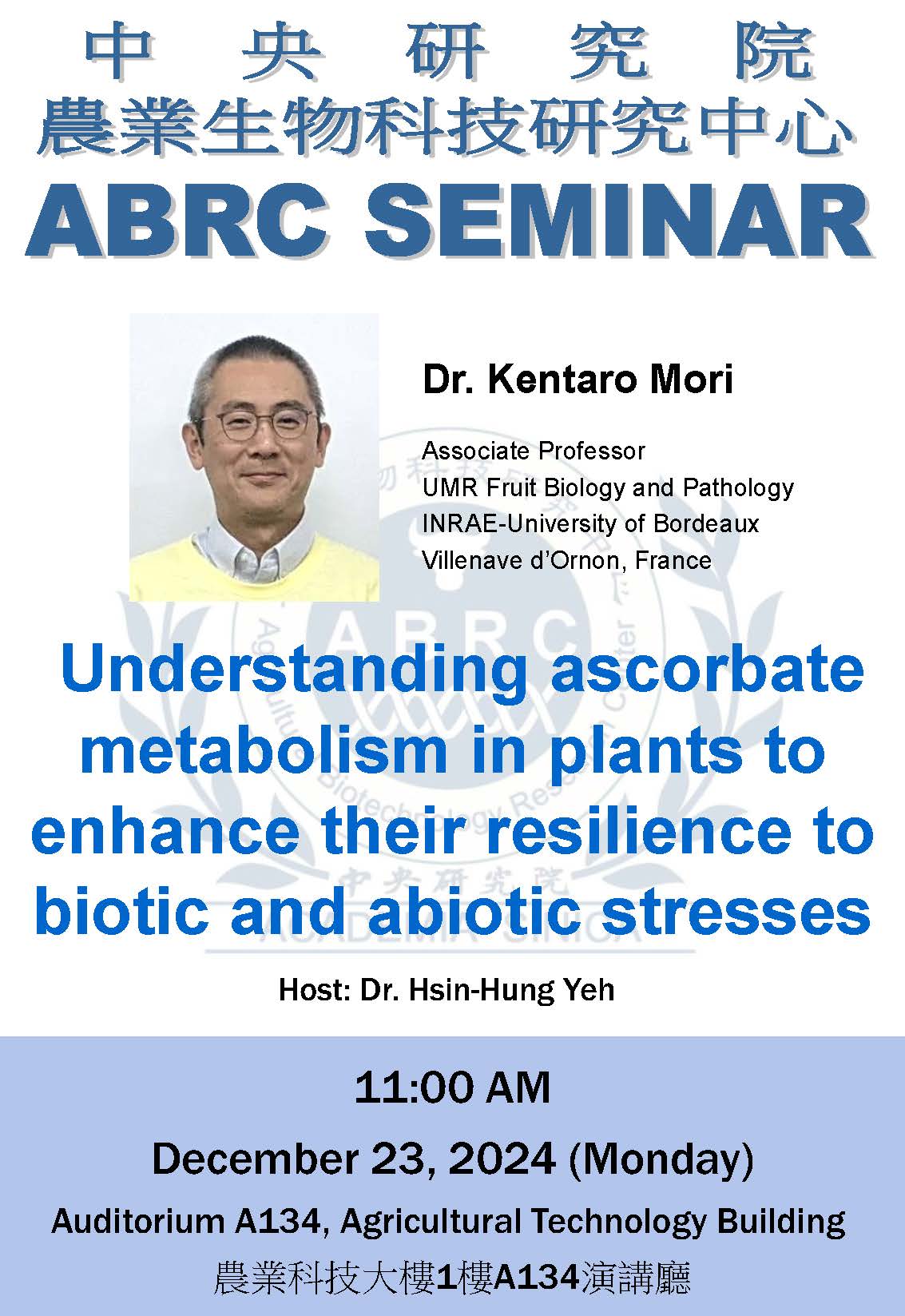- Lectures
- Agricultural Biotechnology Research Center
- Location
Auditorium A134, Agricultural Technology Building
- Speaker Name
Dr. Kentaro Mori (Associate Professor, UMR Fruit Biology and Pathology, INRAE-University of Bordeaux, Villenave d’Ornon, France)
- State
Definitive
- Url
Ascorbate is an essential metabolite that plays a crucial role in maintaining cellular redox balance by scavenging reactive oxygen species (ROS) in living organisms. Twenty-five years after the discovery of the ascorbate biosynthesis pathway in plants, the regulatory mechanisms governing its biosynthesis are gradually being elucidated. Using forward and reverse genetic approaches, we have successfully identified and characterized genes involved in regulating ascorbic acid biosynthesis in tomato (Bournonville and Mori et al., 2023; Deslous et al., 2021). Interestingly, both regulatory elements—a PAS/LOV photoreceptor and an upstream open reading frame (uORF)—were found to negatively regulate one of the ascorbate biosynthesis enzymes, GDP-l-galactose phosphorylase (GGP). In this presentation, we discuss the multi-level regulation of GGP, highlighting how this fine-tuned control contributes to ascorbate homeostasis and would be a potential target to enhance plant resilience to biotic and abiotic stresses.









 Home
Home

